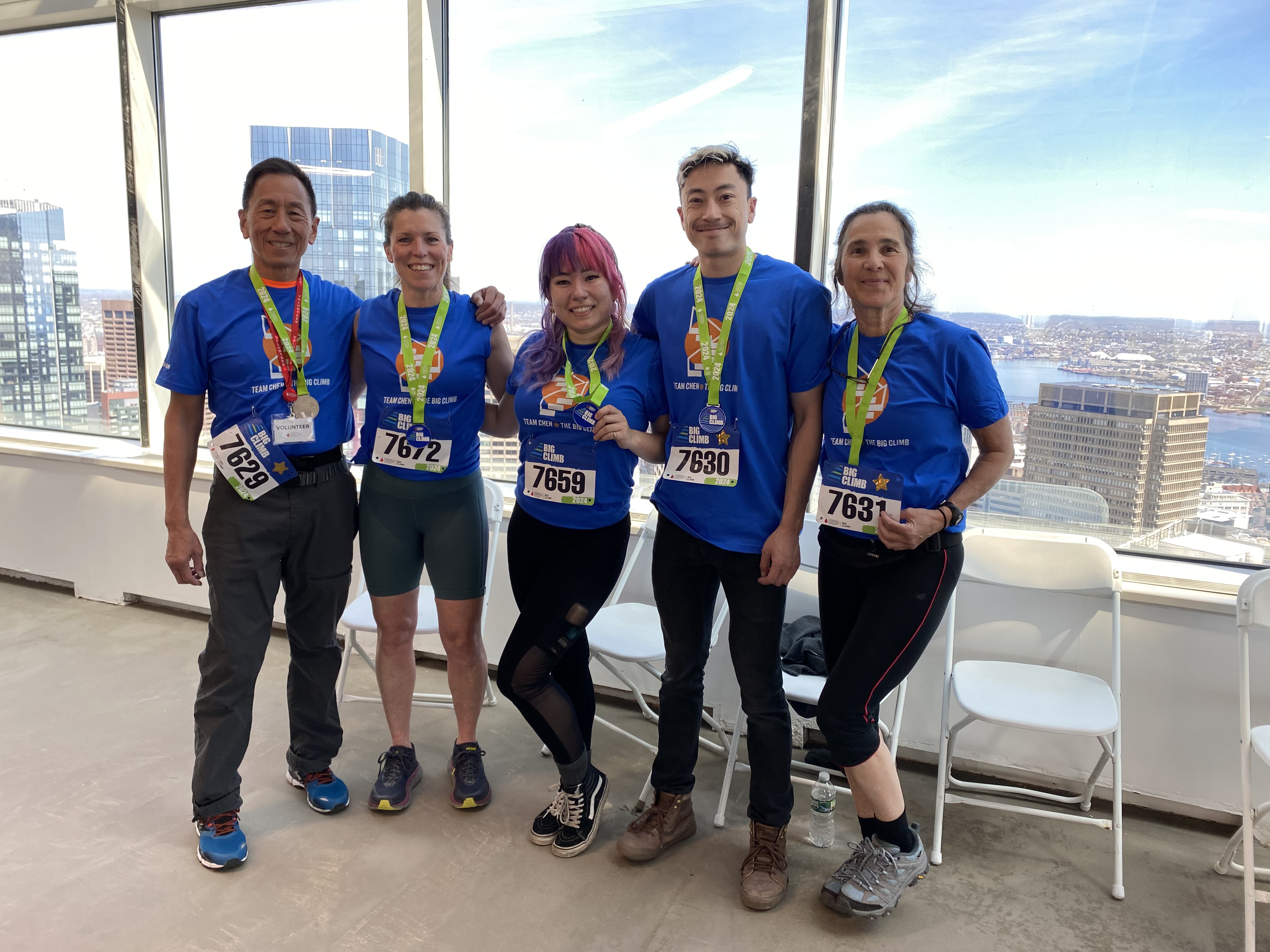Inspirational Stories
Tristan
acute myeloid leukemia (AML)
I live in Colorado but grew up in Massachusetts and am an elite rock climber. I've traveled worldwide to climb and was the 2015 collegiate national champion. In April 2022, I was bouldering by myself and hit my shoulder on a rock behind me. Falls happen as frequently as a baseball player may swing a bat while climbing. This fall was nothing out of the ordinary except my shoulder was bruised far worse than I would expect from how hard I hit it, growing to the size of my hand by the next day. I remember looking at it initially and thinking, "Geez, I hope that's not leukemia."
Over the next couple weeks, the bruising continued and worsened until on May 17 I sought the advice of a friend who was in their physician's residency. I felt completely fine besides and had sent a V15 (an extremely difficult climb) in Utah just prior. On my friend's advice, I went to urgent care to have a complete blood count (CBC) done on my way out of Denver, and I was planning to drive to Salt Lake City afterward. The CBC showed my platelets at 5. My friend was crying on the phone when I told her. From there, I drove myself across town to the University of Colorado Health (UCHealth, which seemed to shock the ONC nurses once I was admitted and received the actual acute myeloid leukemia (AML) diagnosis. When I called my Mom to tell her, my Dad was on business in Connecticut and was already asleep. I told her to wait until the morning to call him as I thought it would be his last night to sleep soundly for a while.
At UCHealth, I received two rounds of chemo before achieving remission and receiving a bone marrow transplant (half my brother's donor cells and half umbilical cord blood shipped in from the EU) on August 4. In total, I spent 67 days in-patient. This was quite difficult for me as I went from hiking several miles over Talus and climbing and falling for hours every day to no longer being allowed to walk without an escort within arm’s reach and having a bed alarm as I was too much of a fall risk to be allowed to stand up without supervision.
Over the course of treatment, I lost 20 pounds, having started at 130 pounds, and when I was released at the end of August, I would struggle to walk up and down stairs or around the block. In October, my team cleared me to drive again. Pretty much immediately, I started taking myself to the gym six times a week (although they never cleared me, and I never asked if this was okay as I knew I would ignore them) to both regain any semblance of my previous life and to recognize who I saw in the mirror as myself. The early sessions in the gym were admittedly a bit of a struggle, and I would have to keep my head between my knees between lifts in order not to vomit, but it paid off, and I was able to start climbing again by Thanksgiving and had gained the weight back by Christmas. Unlike before I was diagnosed, I was no longer motivated by a desire to succeed, improve, or push myself but just to be able to climb with my friends again.
In February, I traveled to Texas to attempt the climb Esperanza. It is a notoriously difficult V14, the hardest climb in the state when it was established in 2001 and was one of the first I had completed back in 2017 and the first "hard" climb I had done easily. The climb was very important to me as it represented being able to climb at, or at least close to, my previous skill level and that I had physically recovered. After three days of effort (the same as the first time), on February 17, nine months exactly after being diagnosed, I sent Esperanza.
I would attribute my recovery to the support I received from my family, who were with me every step of the way, every day in the hospital, and every follow-up afterward (planned or emergency), the BMT nursing staff, and the providers and oncologists at UCHealth. The oncologists at UCHealth have received grants from The Leukemia & Lymphoma Society (LLS) which have helped fund research for the treatment I received. Since my recovery, I've tried to give back to the organizations that helped me. I serve on the Board of the Small Choices Foundation, a local non-profit here in Colorado. Small Choices helps blood cancer patients and their families with resources ranging from in-patient gift packages to holiday support and peer connections. They helped me through a tough time. I'm also actively supporting LLS. I traveled back home to Boston to participate in the 2024 Big Climb. My family and I raised money and participated in Team Chen. We all finished the climb and were the #1 fundraising team in Boston. We hope to do a repeat performance in 2025.
